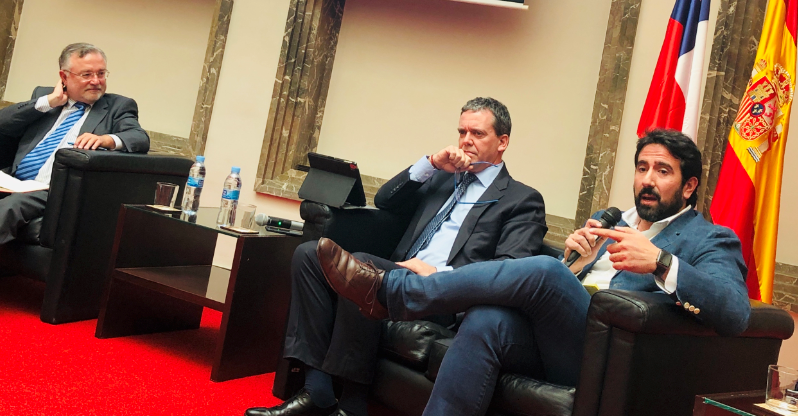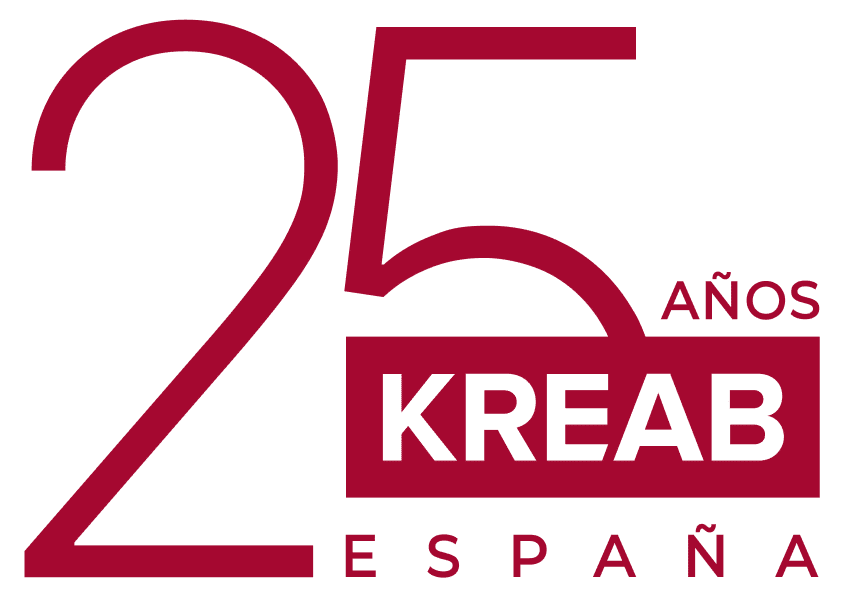
13/06/2019
VII TRANSPARENCY AND GOOD GOVERNANCE FORUM CHILE-SPAIN
Madrid, June 11, 2019. The Chile-Spain Foundation and The National Commission of Markets and Competition (CNMC) held the VII Forum on Transparency and Good Governance in Madrid. The debate revolved around governance and the collaborative society, a necessary binomial to regenerate institutions and public affairs.
The day was opened by Mr José María Marín Quemada, President of the CNMC, who highlighted the strength and autonomy of the institution, which has become a neutral reference that fights for the general interest. Also present in the openeing were, Mr José Vicente Saz, Rector of the University of Alcalá de Henares, and Mr Emilio Gilolmo, president of the Chile-Spain Foundation, who highlighted Chile’s role as a pioneering transparency model, whose effectiveness has become a point of reference for other Ibero-American and European countries. Mr Jorge Tagle, Ambassador of Chile in Spain, during his speech spoke about the strength of the Chile-Spain collaboration, a governance and collaborative society binomial.
Lobbies and free competition
The day had a debate on the world of lobbies, which Chile has taken as a reference point, and was the first country in Latin America that addressed its regulation with the Lobby law of 2014. For Marcelo Drago, Commissioner of the Council for Transparency of Chile, taking into account citizen participation in public governance is key to the success of regulation. Before the current legislation was approved there were three bills in 11 years, this work allowed the maturation of the current legislation and highlights the difficulties of preparing a standard of these characteristics. As he explained, one of the keys to the success of the Chilean case is the simplicity in its implementation that guarantees that the legislation works, although some adjustments and adaptations are still required.
Director of Public Affairs and Communication of British American Tobacco Spain, Mr Pedro Fernández, defended companies’ contribution to public governance. In his opinion, companies must act as evangelizers in their own administrations, based on the internal regulations of companies, which are based on their ethical codes.
Mr Carlos Balmisa, Director of Internal Control of the CNMC, defended the innovative contribution of this institution to obsolete legislation. As explained by the CNMC, it has opted for self-regulation. Such practices have allowed the development of a self-diagnosis model, providing the citizen with tools that allow them to know their situation in compliance with the laws.
During the debate, the contribution of APRI, Association of Institutional Relations Professionals, was made to lobby the lobby. This has allowed the promotion of a regulatory framework for the activity. In Spain there have been numerous initiatives, but none have been approved. For this reason, the important thing is to work on the need for influence disclosure.
The speakers agreed that “we all lobby, in short, we all have to influence to some extent”. For this to be done transparently, the key is to register who you are, who you represent and what you are requesting.
The table of free competition focused on the need to define an environment of respect for the market’s game rules, only this way can contribute to achieve a transparent economic environment, improve efficiency, improving innovation, growth and consumption of more and better goods and services.
From CEOE, Jose Maria Campos Gorriño placed value on the CNMC’s sensitisation work in order for companies to know what they can do and what red lines they cannot pass. This work is essential in an industrial fabric configured by SMEs that lack resources and experts to advise them. He insisted that institutions have to make it easy for companies to access information, for example, on competition law.
During the day it became clear that the collaborative economy is a model that has come to stay, it works in a network, and has had and will have a multiplier effect. Now, networks of people, of knowledge, of countries … have many barriers: from languages and legislations to traditional models that struggle to maintain themselves.
Mr Isaac Martín, Chief Cities & Communities Officer of Cabify contributed differences in the operating models between Spain and Chile. For example in Chile 30% of the activity is by taxis within its own platform, which has 18% female drivers (Vs. 10% in Spain). In his statements Isaac emphasised that Cabify is always in favour of regulations that promote competition by guaranteeing the freedom of choice and safety of users and drivers.
There is no doubt that the concept of competition is changing. Technology has ended monopolies and the model of competition is in transition, “everything is in transition,” he added. Felipe Harboe, Senator of Chile, stressed the need to find mechanisms to legislate in a more agile way and ones that are also adapted to reality, since laws become obsolete very quickly.
Xavier Cima, Digital Policy Director of Kreab, understands the function of the lobbyist from the pedagogical sense, meaning, informing and guiding the administrations in the new business models. For this, the Cotec Foundation for Innovation in the so-called “Sandbox environments” is working on establishing legislative frameworks in which users, companies and administration can simulate models with regulatory scenarios to establish the most effective ones for all parts.
Open government and civil society
The second debate on open government and civil society raised the role of transparency, open data and citizen participation, which have become fundamental parts of today’s society and have empowered the citizen.
For Andres Shoai, Partner and Director of Public Affairs of Kreab, “the crisis of trust and legitimacy is transversal, not only for governments and companies”. The citizen feels light years away from where the power is, this path must be cut through communication, education and empowerment. Companies are tremendously pragmatic and should feel that open governments help them improve their competitiveness, but the key for the long term has to do with deeper principles and company values.”
For Sergio Jiménez Meroño, expert consultant in digital transformation of public administrations, “we are learning to build an open government in a technologically changing environment. The open Government as it is proposed today supposes an unsustainable model: There are hundreds of open citizen participation portals that are impossible to maintain. We have to make transparency matter, knowing how to reach people and their emotional side to make this stand out.”
For Victoria Anderica, director of the Transparency Project of the Madrid City Council, the creation of the open data office has allowed companies and civil society to contribute to the improvement of administrative processes and procedures. The town hall opened a system of participation and public registry, where projects of up to 100 million euros are voted on.
